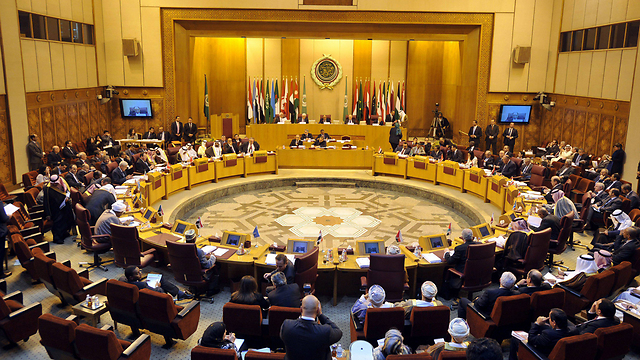
Israel must seize the opportunity for a deal with the Palestinians
Op-ed: In the new map of interests in the Middle East, created by radical Islam's attack on pro-Western Arab states, the price Israel will be required to pay for a solution to the conflict is exceptionally low.
It was good for the Jews. The Soviet Union and its satellite states voted in favor of the United Nations Partition Plan for Palestine on November 29, 1947. More importantly, the Soviets approved the Czech arms deal, in which the new state received vital military equipment which the West refused to supply it with.
The warm relations cooled off shortly afterwards. Israel may have been controlled by a workers' party, but it made a place for itself without hesitation in the Western Bloc, and the Eastern Bloc moved its support to the Arab states and became the main arms supplier of some of our greatest enemies, especially Egypt. But at this stage Israel was an established fact. And the rest is history.
The State of Israel is facing an open window today. Radical Islam's attack – both Shiite and Sunni – on the pro-Western Arab states in the region has created a new map of interests in the Middle East. Countries like Egypt, Saudi Arabia, Jordan and some of the Gulf states see the Islamists rather than Israel as the biggest threat to their regimes. They rightfully see Hamas in Gaza as a dangerous Islamist enclave and treat it accordingly (take note of Egypt's exhibited hostility towards the Hamas government in Gaza during and after Operation Protective Edge). The Palestinian Authority no longer enjoys the sweeping support of radical forces either.

While in the past supporting the Palestinian issue was a way to divert the attention from internal problems in the Arab states and gain some points in the world, it is not the case today. Israel today is a "natural" ally of the region's pro-Western regimes. They have no interest in undermining its stability or threatening its existence. On the contrary.
That doesn’t mean that the "moderate" Arab states can give up solving the Palestinian issue. An official recognition of the land annexation and settlement enterprise will evoke a dangerous response in the public opinion, which is naturally much less "realpolitik" than the leadership.
In order to make Israel an official ally, part of a regional strategic system, the conflict must be solved. That does mean that the price Israel will be required to pay in return is exceptionally low today. Its potential allies will be much more willing than in the past to significantly pressure the Palestinians to compromise. They will be willing to help in different ways by catering to Israel's legitimate security needs. An Islamist takeover of Palestine is as bad for them as it is for us. This is a window of opportunity.
Israel should have an interest to reach a solution. Inaction – the actual Israeli policy since the Oslo Agreements – will turn the bi-national state into a fact in the near future. The separation between the populations will become difficult, if not impossible, as the settlement in West Bank lands continues.
In practice, Israel will have to choose between two bad options: Institutionalizing the inequality (in other words, officially declaring that there are two types of population – people with civil rights and people without civil rights – under its sovereignty) or granting Israeli citizenship to a large and hostile Palestinian minority.
The first option will lead to our isolation in the bloc of democratic states. The second option will eliminate the Zionist dream. The third option, that "something" will happen which will allow us to control the Palestinians and implement an efficient regional policy without an agreement, will be considered a miracle.
We must not rely on miracles. Israel was not established thanks to miracles. It was established thanks to its leaders' impressive ability to understand the balance of power and seize opportunities. While we are busy with what a certain actress said about Likud voters, the window of opportunity is closing.










